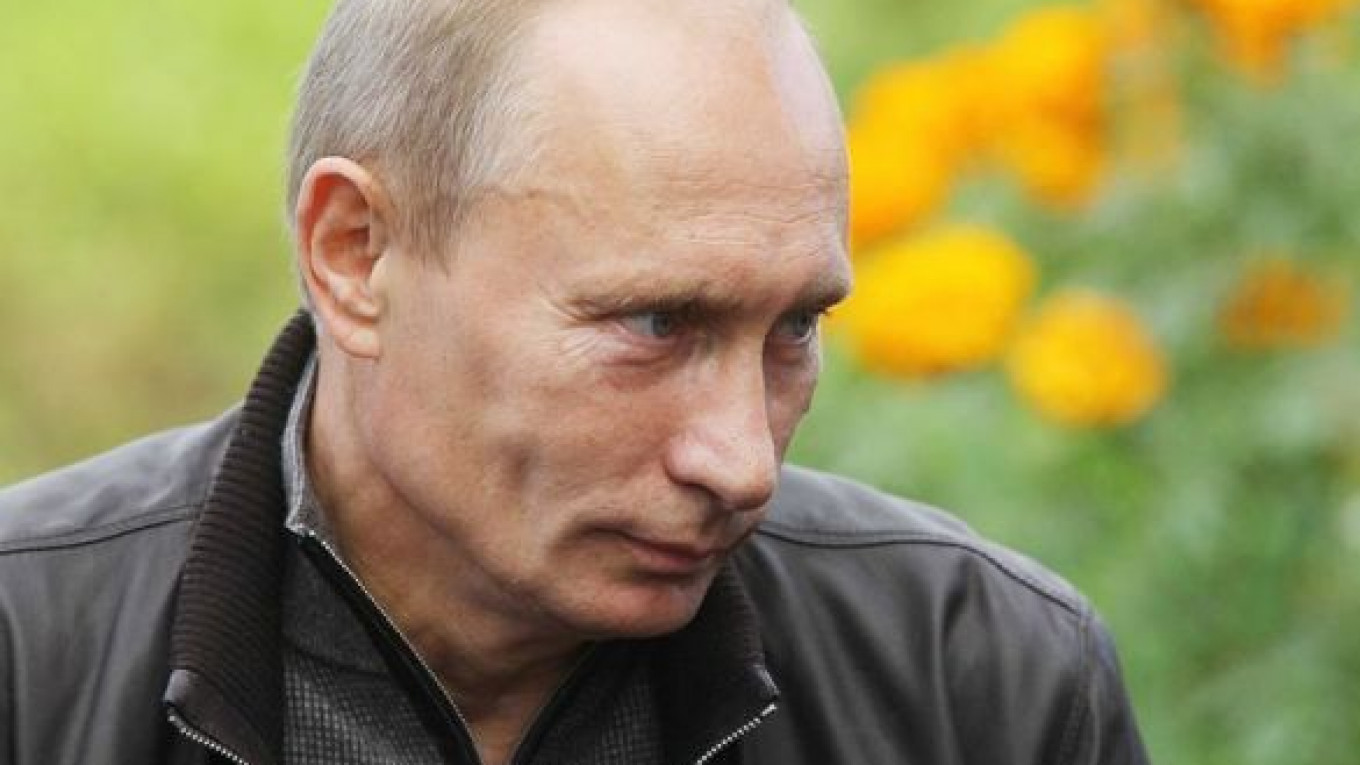The move is a reversal of steps to lower the upper age limit for senior civil servants taken by the then-President Dmitry Medvedev in 2010. Critics said Tuesday that it was another indicator of Putin's unwillingness to contemplate substantive political change.
If the bill is approved by the Duma, corrections will be made to article 25.1 of the Law on State Service to allow top state functionaries older than 65 to continue in their government jobs, said the Kremlin's press office, according to media reports.
It was not immediately clear which officials would be covered by the law but those aged over 60 years old are not a rare sight in the top echelons of Russia's bureaucracy. The oldest serving member in the presidential administration is 80-year old adviser Veniamin Yakovlev.
The official pension age is 55 for women and 60 for men.
Putin himself turns 60 in October and will be 65 in 2018 when he decides whether to contest the presidency for a fourth time. If he does run, and wins, he will be 71 when he is constitutionally obliged to step down as head of state. There is no age restriction for the president.
The legislation is designed to "preserve highly qualified top officials in the civil service," according to the Kremlin, Interfax reported.
The Kremlin's press office declined to confirm media reports about the changes. Dmitry Peskov, Putin's spokesman, did not answer calls to his mobile phone Tuesday.
But it chimes with previous announcements. In June Putin signed off on changes to legislation that removed all age restrictions for the Supreme Court's chairman and his deputies. The current chairman is Vyacheslav Lebedev, who will turn 69 this year.
"It shows how important it is for Putin to be surrounded by people who are loyal, rather than professional," said Ilya Yashin, 29, one of the youngest opposition leaders involved in organizing recent street protests in Moscow. "It's about the preservation of the bureaucracy."
Allowing senior officials to continue in their jobs also appears to be a direct reversal of policies pursued by Medvedev. In 2010, then-President Medvedev fixed the upper age limit for civil servants at 60, with special exceptions possible up to the age of 65.
Putin is "showing who's boss," said Yashin.
The average age of the ministers selected by Prime Minister Medvedev, 46, is significantly lower than that of those who surround Putin in the presidential administration. The youngest member of the Cabinet is 30-year old Communications Minister Nikolai Nikoforov.
The average life expectancy for Russians during 2012 is expected to be 76 years for a woman and 64 years for a man, according to the State Statistics Service.
Some of the oldest officials include the Minister for Far Eastern Development Viktor Ishaev, 64; Foreign Minister Sergei Lavrov, 62; Foreign Intelligence Service head Mikhail Fradkov, 62; Federal Guard Service chief Yevgeny Murov, 67; and Prosecutor General Yury Chaika, 61.
Young people only interested in enriching themselves through corruption and shirking serious work flooded into the ranks of civil service during the mid-2000s and have proved to be unreliable in comparison to their more disciplined, older colleagues, said Pavel Salin, an analyst with the Center for Current Politics.
But the move also allows "Putin to show bureaucrats that he is putting an emphasis on stability," added Salin.
Some heads of state-owned companies are also approaching the twilight of their careers. The president of Russian Railways Vladimir Yakunin, for example, is 64.
"Anything state-owned or semi-state-owned tends to be run by older people," said Luc Jones, 39, a partner at executive recruiting firm Antal.
Leonid Brezhnev, who ruled the country between 1964 and 1982, was the oldest Russian leader in modern history. He died aged 75 while still in office.
Putin said last year that Russia was not facing a period of stagnation during his third presidential term — like that it experienced under Brezhnev — because he and Medvedev function more "intensively" than Soviet leaders.
Continuing to work past the retirement age is not uncommon amongst the population at large and about one third of Russia's pensioners are still in paid employment.
The decision whether to work or not should be a personal one, said Nikolai Chebotarev, 57, head of the Russian Pensioners Union.
"For many pensioners it is important to work," he said. "They can pass on their experience to young people."
Related articles:
A Message from The Moscow Times:
Dear readers,
We are facing unprecedented challenges. Russia's Prosecutor General's Office has designated The Moscow Times as an "undesirable" organization, criminalizing our work and putting our staff at risk of prosecution. This follows our earlier unjust labeling as a "foreign agent."
These actions are direct attempts to silence independent journalism in Russia. The authorities claim our work "discredits the decisions of the Russian leadership." We see things differently: we strive to provide accurate, unbiased reporting on Russia.
We, the journalists of The Moscow Times, refuse to be silenced. But to continue our work, we need your help.
Your support, no matter how small, makes a world of difference. If you can, please support us monthly starting from just $2. It's quick to set up, and every contribution makes a significant impact.
By supporting The Moscow Times, you're defending open, independent journalism in the face of repression. Thank you for standing with us.
Remind me later.


